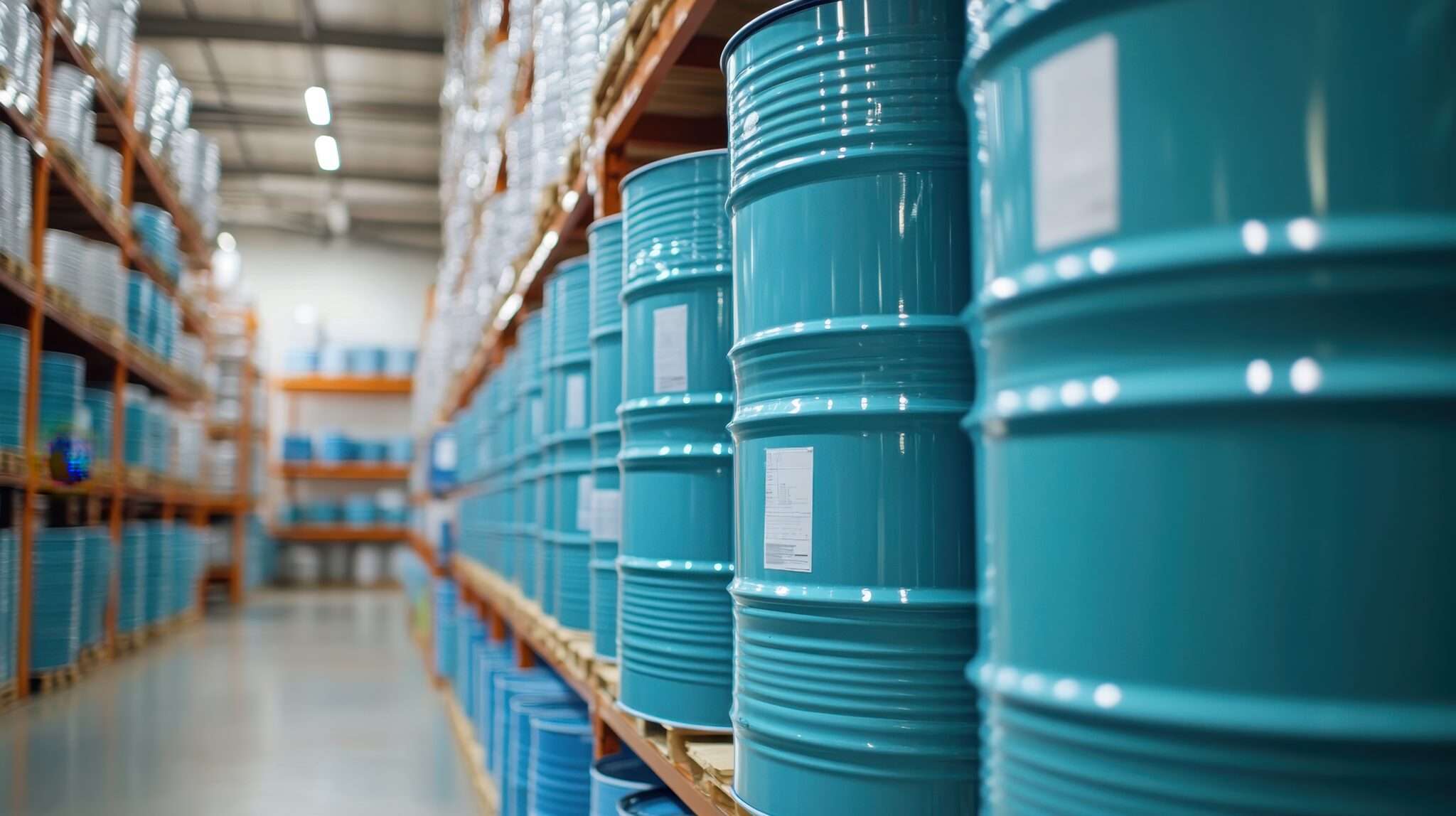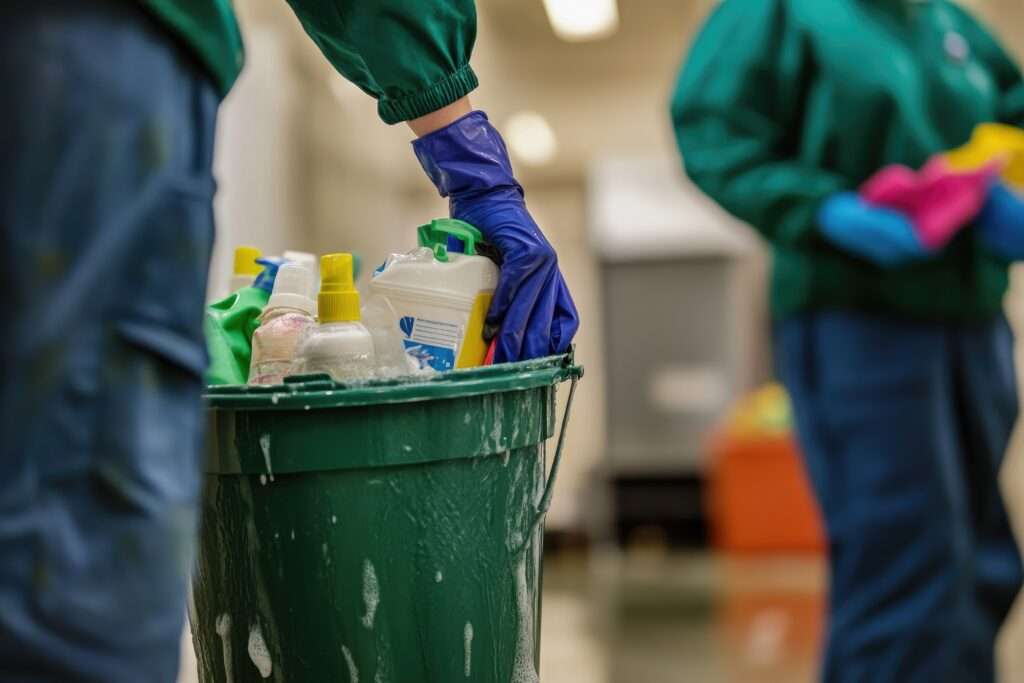For many businesses, the use of household consumer products—such as cleaning solutions, adhesives, and disinfectants—seems routine and risk-free. However, when these products are used in the workplace, the regulatory obligations tied to them can be less than obvious. Under OSHA’s Hazard Communication Standard (HCS), certain consumer products may be exempt from Safety Data Sheet (SDS) requirements—but that exemption isn’t universal.
The distinction lies not in the product itself, but in how it’s used. Factors like frequency, duration, and exposure conditions can elevate a seemingly exempt product into one that requires full SDS compliance. This nuance often leads to confusion—and, if misunderstood, can result in noncompliance.
In this article, we unpack the conditions under which consumer products are exempt from SDS requirements, explain when those exemptions no longer apply, and explore how a solution like TotalSDS can simplify compliance for businesses navigating these complexities.
When Are SDSs for Consumer Products Not Required?
Under OSHA’s Hazard Communication Standard (29 CFR 1910.1200(b)(5)(iv)), certain consumer products are exempt from SDS requirements if they are used in a manner consistent with typical consumer use. This means the product must meet two key conditions in a workplace setting:
- It is used for its intended purpose, and
- It is used with the same frequency and duration as a normal consumer would use it.
If both of these conditions are met, the product falls under the jurisdiction of the Consumer Product Safety Commission (CPSC), not OSHA, and therefore does not require an SDS under HCS rules.
For example, if an office employee occasionally uses a standard glass cleaner to wipe down their computer monitor or desk—just as someone might at home—this would generally be considered exempt. Similarly, a small amount of hand sanitizer or air freshener used intermittently throughout the day would not trigger SDS obligations.
OSHA also exempts products regulated by the Food and Drug Administration (FDA), such as:
- Over-the-counter medications (e.g., aspirin, cold remedies)
- Personal care items (e.g., lotions, shampoos)
- Cosmetics (e.g., makeup, nail polish)
Again, the exemption hinges on proper, intended use. If a product regulated by the FDA is used beyond the scope of typical consumer behavior or in an industrial process, it could fall outside the exemption and become subject to SDS requirements.
While these rules seem straightforward, misinterpretations are common—especially in hybrid workplaces where consumer products are used routinely but in higher quantities or for extended periods. In such cases, employers should reassess whether the product still qualifies for the exemption.
When Are SDSs Required for Consumer Products?
Despite these exemptions, OSHA has clarified through multiple standard interpretations that product use in the workplace often exceeds “consumer-like” exposure. When a product is used more frequently, for longer durations, or in higher concentrations than typical household use, it falls under OSHA’s jurisdiction—and an SDS becomes mandatory.
Real-world examples include:
- A commercial cleaning crew using disinfectants for hours at a time, daily.
- Maintenance workers using industrial adhesives or solvents regularly.
- Manufacturing facilities applying household chemicals as part of operational processes.
In these cases, employers are responsible for requesting an SDS from the manufacturer and making it readily accessible to all affected workers.
The Compliance Risk of Overlooking SDS Requirements
Assuming a consumer product is exempt from SDS requirements without considering how it’s used in the workplace can expose your business to significant compliance risks. OSHA’s expectations are not just about what a product is, but how it’s used, how often, and by whom. When those variables deviate from normal consumer use—even slightly—the product may fall squarely under OSHA’s jurisdiction.
Overlooking SDS requirements for these commonly used items can result in:
- OSHA Citations and Penalties: Noncompliance may lead to costly violations, even for seemingly minor infractions involving familiar products.
- Increased Exposure to Workplace Hazards: Without proper hazard communication, employees may unknowingly misuse products, leading to accidents, injuries, or long-term health risks.
- Reduced Safety Awareness: The absence of SDS documentation can weaken your safety training efforts and erode a culture of compliance.
- Greater Scrutiny During Audits or Inspections: Missing or outdated SDS records for workplace-used consumer products may trigger broader investigations and reputational damage.
Even if a product appears harmless—like a multipurpose cleaner or an aerosol disinfectant—when it’s used frequently, in large quantities, or by multiple employees across shifts, it no longer fits within the bounds of a consumer exemption. In such cases, it’s the employer’s responsibility to ensure SDSs are available and accessible, as required by OSHA’s Hazard Communication Standard.
This is where a purpose-built SDS management solution like TotalSDS becomes essential. By centralizing your documentation, tracking usage trends, and automating compliance workflows, TotalSDS reduces administrative burdens and keeps your organization inspection-ready—even for products that blur the regulatory lines.
Best Practices for SDS Compliance
To navigate these requirements confidently:
- Audit Product Usage: Review how consumer products are actually used across departments.
- Determine Exposure Frequency: Compare usage against what’s considered “normal” consumer use.
- Request SDSs When Necessary: Don’t assume all household products are exempt.
- Train Employees: Make sure workers understand how to access and interpret SDSs.
- Stay Proactive: Regulations evolve, and standard interpretations change—ensure your compliance practices do too.
How TotalSDS Makes SDS Management Simple and Compliant
Managing SDS obligations manually — especially when handling hundreds of products across departments—is time-consuming, inconsistent, and vulnerable to costly gaps in compliance. This is where TotalSDS delivers real value.
With TotalSDS software, your team can:
Automate SDS Collection
Automatically request and store SDSs for any products used beyond consumer-like conditions.
Centralize Your SDS Library
Easily organize, update, and retrieve SDSs from a secure, cloud-based platform available company-wide.
Stay Audit-Ready
Ensure SDSs are accessible in real time—during inspections, audits, or emergencies.
Track SDS Versions and Revisions
Avoid compliance pitfalls by staying current with updated SDSs and regulations.
Simplify Employee Access
Empower your workforce with fast, mobile-friendly access to the latest SDSs—no more paper binders or outdated spreadsheets.
Don’t Let Consumer Products Become a Compliance Blind Spot
Even common household products can fall under OSHA’s SDS requirements if they’re used in ways that increase worker exposure. Employers are responsible for recognizing when this line is crossed and taking steps to ensure proper documentation and communication.
TotalSDS makes it easy to manage your SDS obligations with confidence. Whether you’re a facility manager, EHS professional, or operations leader, our platform is built to support compliance, reduce risk, and streamline your entire hazard communication program.
Ready to modernize your SDS management? Learn more about TotalSDS solutions or request a demo today.


